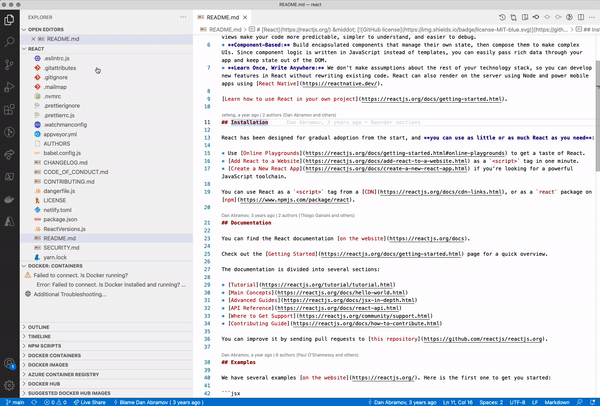How to change all occurrences of a word in all files in a directory
A variation that takes into account subdirectories (untested):
find /var/www -type f -exec sed -i 's/privelages/privileges/g' {} \;
This will find all files (not directories, specified by -type f) under /var/www, and perform a sed command to replace "privelages" with "privileges" on each file it finds.
How do I find and replace all occurrences (in all files) in Visual Studio Code?
Since version 1.3 of vscode this is possible
- Navigate to the search, click icon to the left or:
- (mac)
cmd + shift + h - (PC)
ctrl + shift + h
- (mac)
- expand replace
- enter search term and replace term
- confirm!

How to replace a string in multiple files in linux command line
cd /path/to/your/folder
sed -i 's/foo/bar/g' *
Occurrences of "foo" will be replaced with "bar".
On BSD systems like macOS, you need to provide a backup extension like -i '.bak' or else "risk corruption or partial content" per the manpage.
cd /path/to/your/folder
sed -i '.bak' 's/foo/bar/g' *
I want to search a directory and replace all occurrences of a word in emacs
Burton's answer is as easy as it gets. Here's one way to do it in Emacs:
M-x dired fill in the directory you want to work in
* s marks all files in the directory
Q runs query-replace-regex on all marked files. Fill in the search regex and the replace string.
Type ! to replace all occurrences in each file. You will have to go back to save the changes though.
Changing all occurrences in a folder
There is no way to do it using only sed. You'll need to use at least the find utility together:
find . -type f -exec sed -i.bak "s/foo/bar/g" {} \;
This command will create a .bak file for each changed file.
Notes:
- The
-iargument forsedcommand is a GNU extension, so, if you are running this command with the BSD'ssedyou will need to redirect the output to a new file then rename it. - The
findutility does not implement the-execargument in old UNIX boxes, so, you will need to use a| xargsinstead.
How can I replace all instances of a string in my entire home directory?
sed is your friend.
$ sed -i 's_github.com/retep-mathwizard/utils/src_github.com/retep-mathwizard/utils_g' *.txt
Where *.txt is whatever text files you want to search/replace. Note that the _ is important. It's used to separate the patterns in the search-and-replace, because you have both the standard / separator and the oft-used alternative - in your pattern. The -i.bak option will tell sed to edit the files in place, and save a backup copy with the extension .bak.
If the files are in many subdirectories, you'll need to use a combo like find and xargs.
$ find ~ -name "*.txt" -print0 | xargs -0 sed -i.bak 's_github.com/retep-mathwizard/utils/src_github.com/retep-mathwizard/utils_g'
Again, *.txt is whatever regex will find only those files you want to replace text in.
DISCLAIMER: As with anything involving these tools, you should try this out on something replaceable or in a new git branch first.
EDIT: Removed extension on -i flag. As pointed out in the comments, everything is under source control, so it should be fine to do in-place editing without saving a backup file.
How can I replace a word all the files within a folder in Vim?
Open Vim with all the files loaded into buffers, and do the replace on all buffers at once with bufdo:
% vim *
... when vim has loaded:
:bufdo %s/iwanthis/replacedbythis/g | w
The | w will write each file back to disk.
Search and replace text in all files of a linux directory
The following will do it:
sed -i 's/old_link/new_link/g' file...
Don't forget to escape any slashes, dots, and any other regex special chars in the link addresses with a backslash.
Related Topics
How to Convert Pptx Files to Jpg or Png (For Each Slide) on Linux
How to Test If Your Linux Support Sse2
How to Build a Docker Image on Windows 10
Using Mkdir -M -P and Chown Together Correctly
Monitoring File and Directory Access on Linux
How to Debug a Futex Contention Shown in Strace
Why Doing I/O in Linux Is Uninterruptible
On Linux: How to Programmatically Determine If a Nic Interface Is Enabled and Plugged In
What Is The Significance of This_Module in Linux Kernel Module Drivers
What's an Alternative for Dtrace on Linux
Context Switch in Interrupt Handlers
Aws-Ec2, How to Set Multiple Public Sites with Just One Instance
How to Login to 'Firebase-Tools' on Headless Remote Server
Why Ulimit Can't Limit Resident Memory Successfully and How
Using Gnu/Linux System Call 'Splice' for Zero-Copy Socket to Socket Data Transfers in Haskell